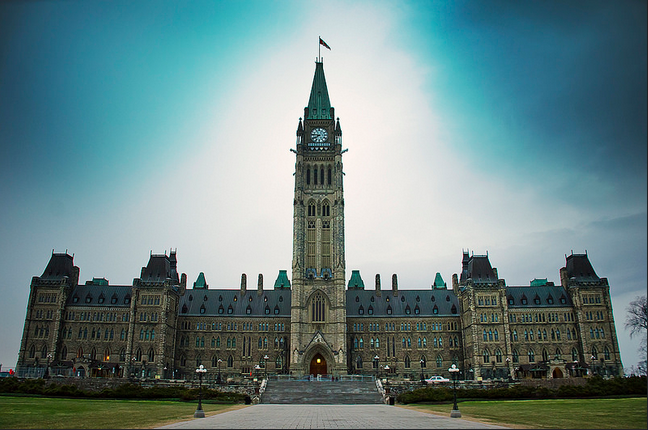By Drew Bush
In our second edition of Geothoughts, we’re excited to bring you an interview with an expert in the issues that arise with innovations in information and communications technology. Daniel Paré is an Associate Professor in the Department of Communication at University of Ottawa. You can also subscribe to this podcast by finding it on iTunes.
In this interview, we explore how Canada’s Action Plan for Open Government 2.0 focuses too much on the technological side without emphasizing the need for open government across the entire Canadian government information environment. In particular, Paré discusses his views on open data and what the evolving role of the engaged citizen might be.
Thanks for tuning in. And we hope you subscribe with us at Geothoughts on iTunes. A transcript of this original audio podcast follows.
TRANSCRIPT OF AUDIO PODCAST
This week we ask the opinion of an expert in the issues that arise with innovations in information and communication technologies about Canada’s Action Plan for Open Government 2.0 and the role of open data. Daniel Paré is an Associate Professor in the Department of Communication at University of Ottawa.
[Geothink.ca theme music]
Welcome to Geothoughts. I’m Drew Bush.
For Paré, open government has much less to do with the technological aspects of the portal being emphasized in the Action Plan than whether the idea has transcended the technological issues to include all aspects of governance.
“What we need to do—what people need to do—is clearly distinguish between when we are talking about open government are we talking about the data platform and the portal. Or are we talking about the idea of open government being government-wide in terms of the policies that are in place, in terms of the whole information environment, if I can call it that, that includes the platform but that transcends it?”
If implemented with the whole information environment in mind, he argues, the idea of open government has the potential to democratize and make transparent Canada’s government. However, such a step requires more than data being made available online.
“One of the weaknesses with that point is that you know when you look at the information available online, one of the things you increasingly see is that it’s actually quite difficult for the average individual like you or me to actually do something with those datasets unless we have some pretty advanced understandings of computers and standards and how to do stuff with that.”
A Geothink researcher, Paré specializes in social, economic, political and technical issues arising from innovations in information and communication technologies (ICTs) in developing and industrialized countries. In particular, his research examines e-commerce, Internet governance, information and communication policy, e-government, and knowledge networks.
It’s for this reason that he believes Canada’s Action Plan for Open Government 2.0 might have a very nice technological and economic agenda but still miss on making the government transparent if a flawed access to information system is left in place legislatively. Some of his concerns echo those expressed by Tracey Lauriault in previous Geothink.ca stories.
“Open government is a wonderful narrative contract and you can have a wonderful discourse about that in terms of yes, you know, we’re open so were more transparent, we’re more democratic. It’s all a great thing. But the issue comes down to how that’s really manifest and how that’s really open. How that’s really sort of implemented. And, so, what my concerns is that when we talk about open government, is that it does tend to focus our attention, I think, too narrowly on things like the open government portal or the technological side.”
As for the emphasis on technological innovation and economic gain in much of the Action Plan, Paré believes it juxtaposes the need to enhance democratization and citizen engagement. A better question, he asks, is if government should see citizens as their clients or as simply requiring information to “facilitate, improve, enhance and participate in the democratic process.
This story originally reported by Prajakta Dhopade, many thanks to her.”
[Geothink.ca theme music]
[Voice over: Geothoughts are brought to you by Geothink.ca and generous funding from Canada’s Social Sciences and Humanities Research Council.]
###
If you have thoughts or questions about this podcast, get in touch with Drew Bush, Geothink’s digital journalist, at drew.bush@mail.mcgill.ca.
